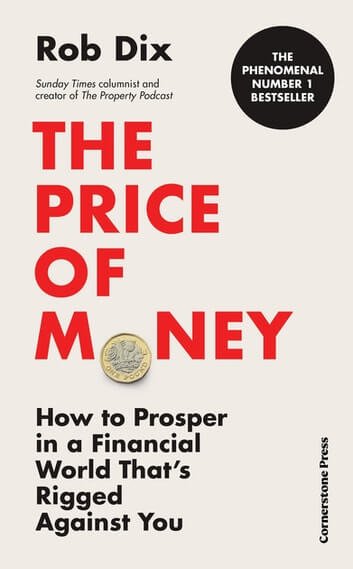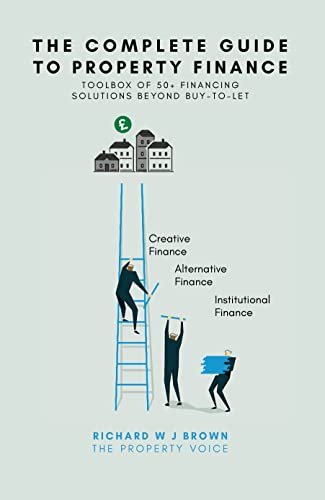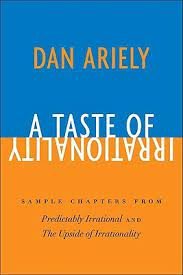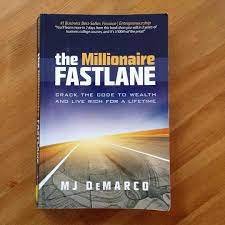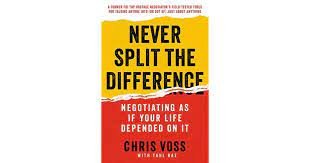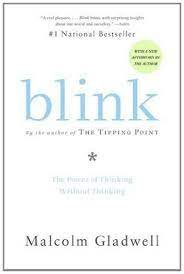My Top Ten UK Property Investment Books
Warren Buffet advises wealth wannabes to read 500 pages a day. Start with these UK property investment books
“Read 500 pages every day,” Warren Buffet advised Columbia Business School MBA students in 2000.. “That’s how knowledge works. It builds up, like compound interest. All of you can do it, but I guarantee not very many of you will do it.”
If you’re an expat UK property investor, you probably have a job; you're probably building or trying to build a UK property portfolio on the side. You’re BUSY!
So, reading books may not be the top of your agenda. But unless you’re happy swapping your time for money, then perhaps it should be.
And students have more time than expats, so I guess it’s even less likely that us expats can find time for 182,500 words in a year…
Especially as we must make time to sort out expat mortgages and work out which UK property investment companies to work with.
But, if you’re serious about becoming a long term property investor and building a UK property portfolio, then you should make time to grow your knowledge and grow your wealth.
The books recommended in this list represent your guide to UK property investment.
For the 12 days of Christmas 2022, I reviewed my top 10 UK property investment books
With that in mind, over Christmas 2022, I put together a mini season of daily podcast episodes to celebrate the Twelve Days of Christmas in which I reviewed my top ten UK property investment books.
So, over the Twelve days of Christmas 2022, I put together a mini season of daily podcast episodes in which I reviewed my top ten UK property investment books.
I cheated by squeezing in one more book so the first two books on the list had to share 10th spot on my list.
Equal 10th place in my top 10
UK property investment books!
The first book sharing tenth place was ‘The Price of Money: How to Prosper in a Financial World That's Rigged Against You’, by Rob Dix, our very first guest back in Episode One of Expat Property Story.
‘This book offers a jargon free high level overview of the financial system.
It gives us an insight into what's happening right now and how we got here, with super inflation and eye-wateringly high interest rates.
The book explains how quantitative easing, which is basically the government printing money and giving it away, has made money worth less than it was before.
The author also offers a way forward out of the mess, which is (you guessed it!) property…
Also equal 10th place in my top 10 UK property investment books!
Richard Brown has a lot in common with Rob Dix. They’re both former guests of Expat Property story; they both host podcasts on property and they’ve both written numerous books.
Richard’s book is called The Complete Guide to Property Finance: Toolbox of 50 Financing Solutions Beyond Buy-to-Let.
It basically goes through all the different funding options available to property investors from traditional long-term lending to more sophisticated strategies, such as purchase lease options, delayed completion, and even vendor finance.
Sooner or later, you're going to run out of your own funds to invest and you may look to raise finance from private investors.
There are a couple of chapters on this very subject so whether you’re looking to borrow or looking to lend, you should definitely understand all the implications which Richard goes through.
And on that subject, we're always happy to schedule a chat and find out what you’re looking to achieve and if we can do that by working together, then all well and good. And if not, then we can point you in the direction of someone who can.
My favourite Chapter is the last one which is all about the importance of a money mindset.
Richard goes through the eight different archetypal money characters identified in another book called ‘Money Magic’ by Deborah Price.
The characters are the innocent, the victim, the warrior, the martyr, the fool, the creator, the tyrant, and the magician.
Thought provoking stuff!
Top 10 UK property investment book:Number 9
In ninth place, I chose ‘Predictably Irrational’ by Dan Ariely, who has a talent for uncovering the hidden reasons behind the economic decisions humans typically make.
The book opens with an experiment whereby readers of a magazine are offered three choices of subscription, a digital version at $59, a print version at $125, and a print and digital package at the same price, ie $125.
84 people opted for the combined digital and print package; 16 People for the digital only package'; and unsurprisingly, no one opted for the print only package, because for the same price, you could get both digital and print versions together.
But when the print only version was removed as an option, 68 people chose the internet only option for $59, up from 16 before, and only 32 people chose the combination subscription for $125.
The author argues that the presence of the decoy sent 84 of them to the print and internet version, while the absence of the decoy drastically altered their choices. Ariely calls this predictably irrational, hence the title of the book.
This is a fascinating book with lots of relevance for property investors which are highlighted during the episode.
Top 10 UK property investment book: Number 8
Position number 8 in my top UK property investment books was taken up by ‘The Millionaire Fast Lane’ by MJ DeMarco.
At the start of this article, I suggested that expats are perhaps even less likely to read the 500 pages a day Warren Buffet advised those looking for wealth than his audience of MBA students.
But wealth cannot be accelerated when it's pegged to mathematics based on time. You need to divorce yourself from the exchange of time for money. And that is the central theme behind DeMarco’s book. You need passive income.
The Millionaire Fast Lane gives you the knowledge of how to make money for yourself and not be a well paid slave for others stuck in the ‘get rich, slow’ lane.
Top 10 UK property investment book: Number 7
Number 7 in my top UK property investment books was “The Psychology of Persuasion” by Robert B. Cialdini.
This classic presents six universal principles that teach you not just how to become a skilled persuader, but, just as importantly, how to defend yourself against one.
The six principles are described as ‘weapons of influence’ and they are:
· Reciprocation
· Commitment and Consistency
· Social proof
· Authority
· Liking
· Scarcity
The chapter on commitment and consistency contains one of my favourite marketing stories, which I admire for its ingenuity rather than its lack of morals.
Many large toy stores make loads of money in the run up to Christmas but then inevitably sales slump in the months that follow. So the toy stores in the author's example came up with an ingenious plan.
Year after year, they would run a highly visible marketing campaign targeting that year’s must-have toy in the run up to Christmas, only to under supply the stores with the featured ‘in demand’ trendy toy.
When parents were unable to purchase the toy after weeks of nagging from their children, they would buy something else to ensure that the child had something to unwrap on Christmas Day.
But, having made a commitment to their children and wanting to remain consistent with their word and not letting them down. Parents would invariably return to the store after Christmas when stocks were magically replenished.
Check out my review of the book in Episode 61 for more examples from the book
Top 10 UK property investment book: Number 6
Negotiation is an important skill to master when building a UK property portfolio and Chris Voss’ book on the topic is worthy of its place at six on my list of top UK property investment books.
Its full title is ‘Never split the difference: Negotiating As If Your Life Depended On It’ and much of the knowledge contained within its 250 odd pages is gleaned from situations in which lives really did depend on the skills of the writer, who previously worked as an FBI hostage negotiator.
The book gets its name from the concept that splitting the difference is like wearing two differently coloured shoes. It just doesn't work. The result of meeting people halfway is often a bad deal for both sides,
‘Never Split the Difference’ is packed full of tips and tricks such as:
1. Mirroring: repeating back the last three words someone has said
2. Labelling pain: acknowledging the problems of the person with whom you’re negotiating
3. Recognising that ‘No’ is not failure. It could mean ‘not yet’, or ‘not in this way’
4. Pushing people to say ‘yes’ can be counter-productive
There are useful chapters on dealing with deadlines and getting people to say ‘that's right’, rather than ‘you’re right’, and how to frame questions, so that you use ‘how’ and ‘what’ rather than ‘why’.
Negotiating is at the heart of almost everything we do, so that’s why this book made the list.
Top 10 UK property investment book:Number 5
Number 5 in my top ten UK property investment books was the only one specifically for expats. It forms part of a series of books produced by the Tax Café and this one is called ‘Tax Planning for Non Residents & Non-Doms’, by Nick Braun.
Other titles include ‘Pension Magic’, also by Nick Braun, and ‘Keep it Simple’, a book on the practicalities involved in building a profitable and efficient business. I would say that while all of these titles serve their purposes, ‘Tax Planning for Non-Residents and Non-Doms’ is a vital book for expats for obvious reasons.
I frequently have conversations with expats, who tell me their plans for the future without the slightest knowledge of, for example, the statutory residence test.
Did you know for instance, that you may be ordinarily tax resident in one country, but that your domicility country for inheritance tax purposes is actually determined by the person on whom you are legally dependent at the point of birth?
The book is split into three parts: the statutory residence test, income tax planning, and Capital Gains Tax planning.
The purpose of the book is to explain in plain English how you are taxed when you are non UK resident and non UK domiciled.
‘Tax planning nor Non-Doms…’ will put you in a better position when you approach your expat tax advisor, allowing you not only to ask better questions, but also to understand the answers, which will then help you to ask better follow up questions, et cetera, et cetera.
Top 10 UK property investment book: Number 4
Episode 65 of Expat Property Story revealed Number 4 in my favourite UK property investment books and it’s a book that has come up more than once during my many interviews on the podcast.
It’s ‘The E-Myth Revisited’ by Michael Gerber. The main message behind this book is that to be successful, you need to work on your business rather than in your business.
I can relate to this as I sometimes find that I spend so much time dealing with issues that crop up relating to our existing portfolio, such as dealing with incompetent utility companies (let’s leave it there!)
Much of the book is explained through the lens of a baker named Sarah who started her business because of her passion for making pies.
The E in E Myth stands for entrepreneur. And the entrepreneurial myth is that small businesses are started by entrepreneurs seeking profit, whereas nine times out of ten they're started by technicians or employees who decide to work for themselves.
Unfortunately, these technicians usually understand the technicalities of their chosen field, but not how to run a business. Sarah is a classic example of a technician. She knows how to make pies, but not how to run a business. And, as such, she is even losing her passion for pies.
If your business depends on you, when you don't have a business, you have a job. What you need is a business that is system dependent rather than people dependent.
The purpose of your life should not be to serve your business, and the primary purpose of your business is to serve your life.
Gerber advocates small business owners to pretend that they're going to franchise their business as if it was a prototype for 5000 replica models. He has six rules for what he calls the franchise game:
1. The model must provide consistent value to employees and customers alike.
2. The model can be operated by people with the lowest possible level of skill.
3. The model must be in perfect order.
4. All work in the model must be documented.
5. The model must provide a uniformly predictable service to the customer.
6. The model must have a uniform colour, dress and facilities code.
Top 10 UK property investment book:Number 3
Episode 66 took us into the top three of my favourite UK property investment books.
It’s by one of my favourite authors of non-fiction, Malcolm Gladwell and it’s called ‘Blink: The Power of Thinking Without Thinking’.
It explores how brilliant decisions are often made in the blink of an eye, but built on the foundation of years of experience.
So we encounter a psychologist who can predict whether a couple are likely to divorce based on just a few minutes observation, an art expert who can spot a fake at a glance and a tennis coach who can tell whether a player will double fault before the racket hits the ball.
Gladwell identifies a concept called thin slicing, and illustrates it with several different scenarios.
But my favourite is subtitled the secrets of the bedroom, which reports on a study by psychologist Sam Gosling, which concluded but for the most part, you will learn more about someone by spending 15 minutes unaccompanied in their bedroom, and without ever meeting them, which is thin slicing, than by going out for dinner or to the cinema etc, with that same person twice a week for six months, which is thick slicing.
The book goes on to highlight that while thin slicing may lead to what appear to be snap decisions to observers, these decisions are actually based on years of experience, and that we ought to respect that it's possible to know without knowing why we know and to accept the mysterious nature of our snap judgement.
I often wonder why people say you shouldn't be judgmental, when my own belief, much like the concept of thin slicing is that you should definitely be quick to judge others.
But those judgments should be backed up by years of experiences of meeting lots of different kinds of people, which may be an advantage that we expats have over others.
Before you think it's all about gut instinct and snap decisions, Gladwell highlights that some decisions require more analysis and due diligence than others.
When mine and my wife's Expat Property Story began, we had to make lots of decisions. Who should we work with in the UK? Which UK property sourcers, expat mortgage brokers, solicitors, and everyone else in between.
And while I'm not saying word of mouth, due diligence and testing the water didn't play their part, in the end, the decisions were usually based on things that can't be explained, a feeling, a snap judgement. Thin slicing, as opposed to thick slicing.
Top 10 UK property investment book: Number 2
Back in Episode 19, I interviewed John Howard of Property Elevator and Property Graduate fame, who told me that if you're serious about property investing, you need to be buying at wholesale rather than retail prices.
I questioned how easy this was for expats. And he suggested looking at auctions.
I soon hit upon the idea of starting a new season of the podcast in which I challenged myself to buy a UK property within four months from my home in Hong Kong.
Not long into my challenge, I came across Number 2 in my top ten favourite UK property investment books: ‘Before the Hammer Falls’ by Jay Howard & Piotr Rusinek.
If you’re interested in buying (or selling) UK property at auction, then this is a must-read title.
My favourite UK property investment book
Well done for making it to the end (assuming you didn’t cheat and scroll down to the bottom to see which of my UK property investment books made it to the top of the charts)!
The winner has been called been called ‘the granddaddy of all motivational literature’. It’s sold more than a million copies and although it was first published in 1937, it's as relevant today as it was back then.
It is of course ‘Think & Grow Rich’ and it was written by Napoleon Hill after interviewing more than 500 of the most successful and wealthiest people of the day, including Thomas Edison, Andrew Carnegie, Henry Ford, and many others.
Over a 25 year period, Hill condensed his findings into 13 success principles, which he turns into 15 chapters of gold in this must-read self development masterpiece.
Many of the ideas that are thought of as modern now, such as mastermind groups, self affirmations, and working on your mindset were all well and truly alive back in the early 20th century
Here are some of the principles in the book:
1. What you think will become your reality. So think of success
2. Have an all-consuming desire to achieve your objectives.
3. Have unwavering faith in your ability to achieve your goal.
4. Gain specialised knowledge in your chosen field.
5. Create or join a mastermind group to add to this knowledge.
6. Use your imagination to think big.
7. Knowledge is only potential power. Knowledge only becomes actual power. If it can be put to use as part of an organised plan.
8. Decisiveness, make a decision and stick to it.
9. Persistence Don't give up!
10. Work on your subconscious mind through affirmations and auto suggestions
11. Sex energy transmutation. I'm not going to attempt to explain this one. So go and read the book!
So if you invest in property, even if you can’t keep up with Warren Buffet’s 500 pages a day, if you’re disciplined, you should be able to get through that lot in a couple of months and if you do, you too will surely be able to think and grow rich.
Assuming, of course that you take action…



